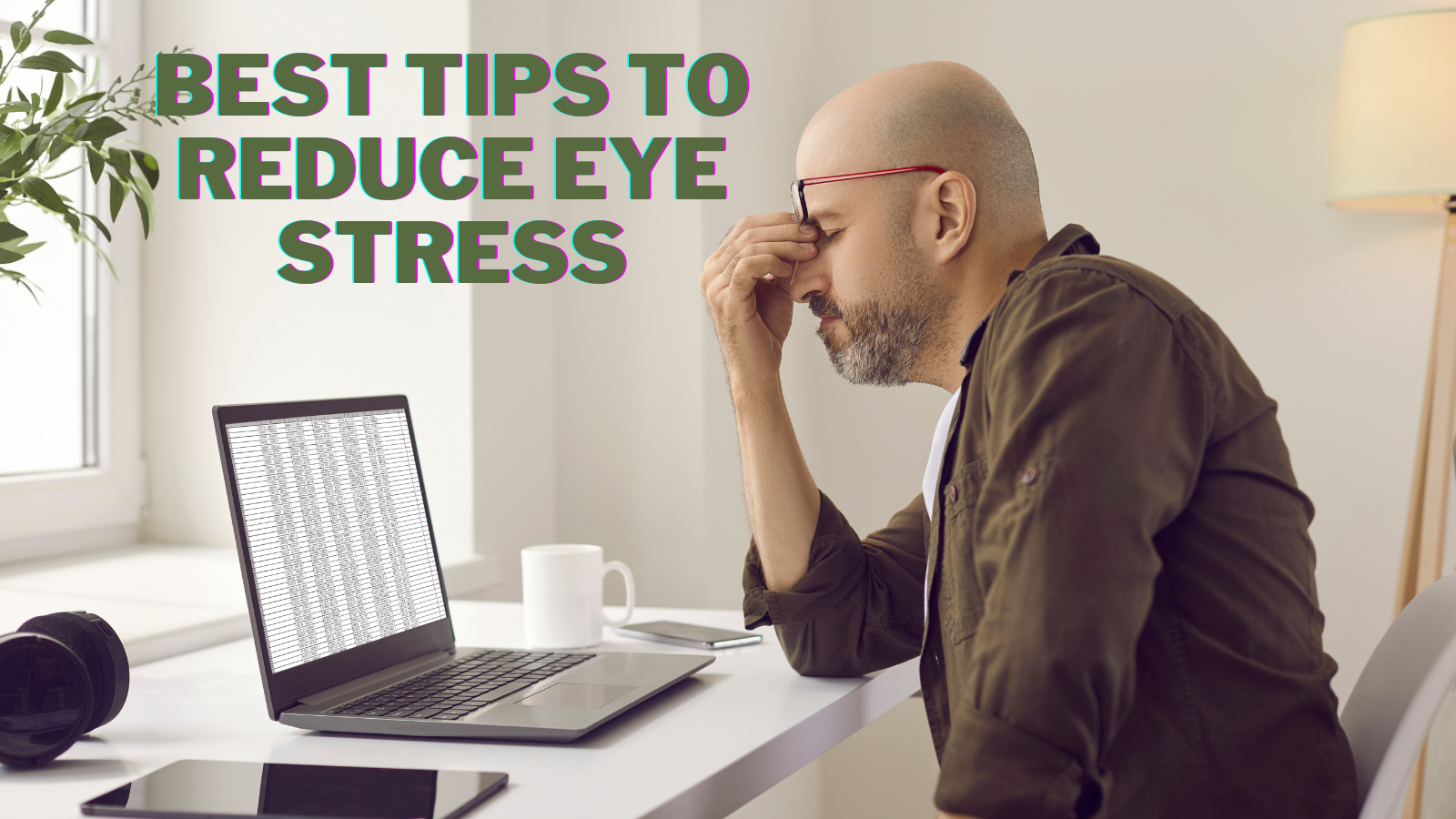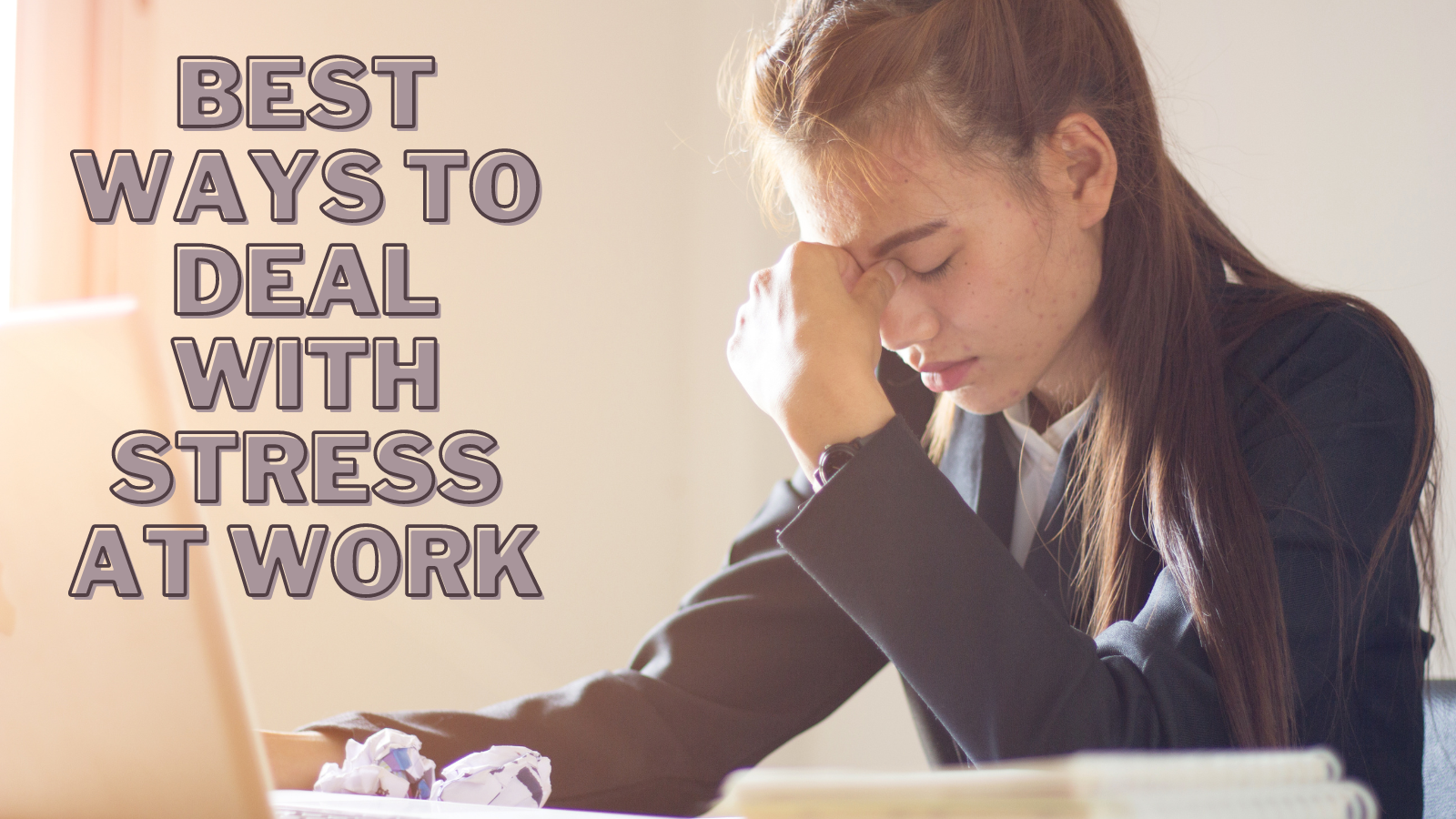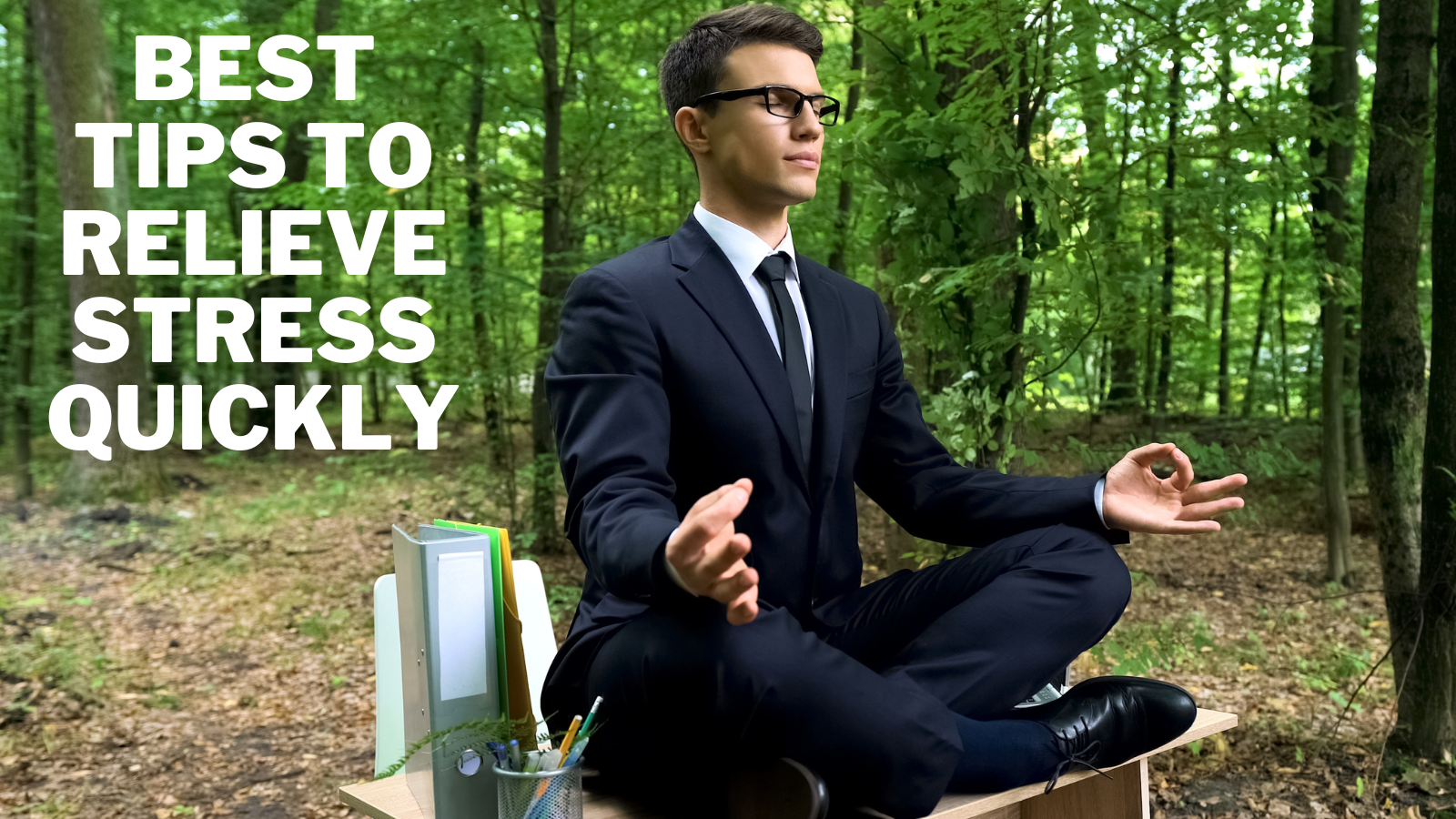Best Tips To Reduce Eye Stress
Best Tips To Reduce Eye Stress
In today's world, where screens have become an integral part of our lives, it's no surprise that many of us experience eye strain and fatigue.
Whether you're working long hours in front of a computer, scrolling through social media on your phone, or binge-watching your favourite show on TV, the constant exposure to screens can take a toll on your eyes.
But don't worry; there are several tips and techniques that you can follow to reduce eye stress and protect your vision.
This blog post will share tips to help you reduce eye strain and keep your eyes healthy. So, let's get started!
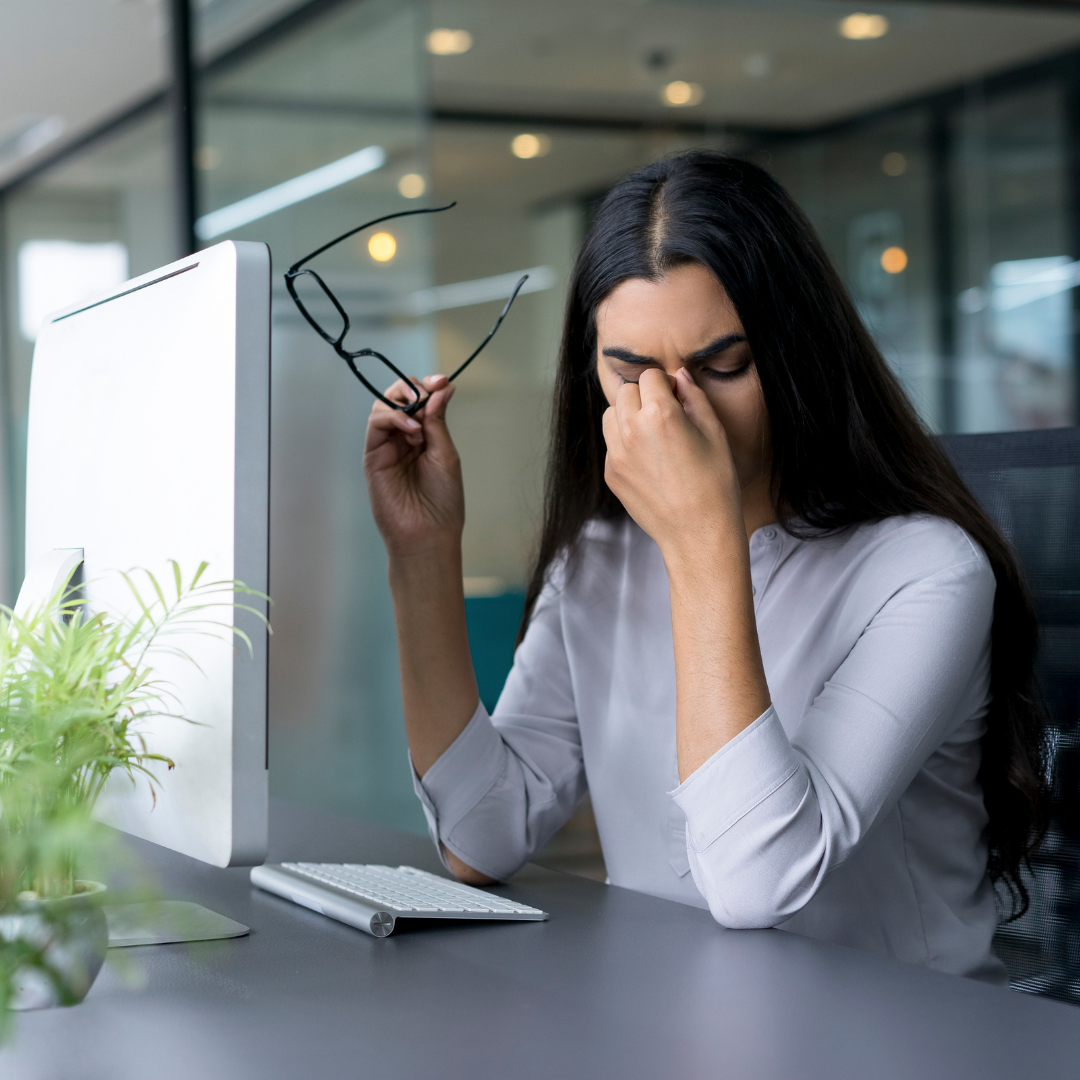
What Is Eye Stress?
Eye strain, also known as eye fatigue or asthenopia, is common when the eyes become tired, uncomfortable, or strained after prolonged use. It can happen to anyone, regardless of age or gender.
It can result in various symptoms, including headaches, blurred vision, dry eyes, neck and shoulder pain, difficulty concentrating, increased sensitivity to light, and double vision.
The causes of eye strain can vary, but common factors include:
- Extended use of digital devices such as computers, tablets, and smartphones,
- Reading for long periods without taking a break
- Poor lighting conditions
- Environmental factors such as dry air or high altitude
- Lack of sleep or rest
- Untreated vision problems
Eye strain can be prevented or reduced by taking some simple measures, such as
- Taking frequent breaks when using digital devices or reading
- Frequently blinking to keep the eyes moist
- Adjusting lighting to reduce glare and eyestrain
- Practicing good posture to reduce strain on the neck and shoulders
- Get enough sleep
- Using proper eyewear if necessary
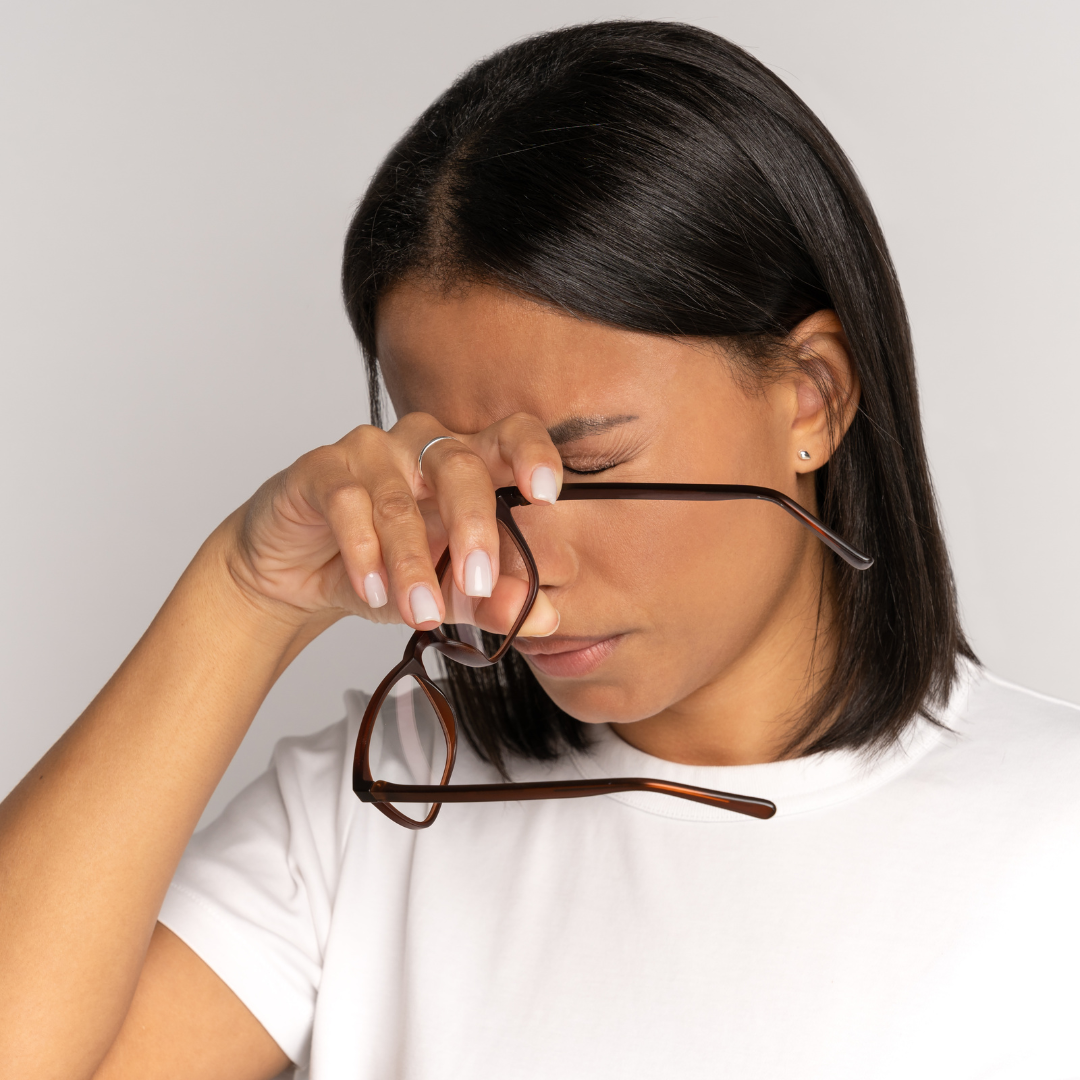
Tips To Reduce Eye Stress
Eye strain or eye fatigue is a common problem due to long hours of computer work, reading, or other activities involving the eyes.
The good news is that several tips and techniques can help reduce eye stress and prevent eye strain.
1. Take Regular Breaks
Regular breaks from screen time or any activity involving using your eyes for long periods is important for maintaining healthy eyes and preventing eye strain or fatigue.
When we stare at a screen or focus on a close-up task for extended periods, our eyes become fatigued as they work harder to maintain focus and deal with the glare and blue light emitted by the screen.
It is recommended to follow the 20-20-20 rule to reduce eye strain and fatigue. Every 20 minutes, take a break and look away from the screen or close-up task.
Focus on an object in the distance for 20 seconds. This helps relax the eye muscles and reduce eye strain.
Maintaining good posture and proper lighting when working on a screen or doing close-up tasks is important.
Position the screen at a comfortable distance and angle, and adjust the lighting so it is not too bright or dim.
2. Blink Frequently
Blinking is a natural reflex that helps to keep our eyes lubricated and healthy. When we stare at a screen or read for an extended period, we blink less frequently, leading to eye strain, dryness, and fatigue.
Blinking helps to moisten our eyes, spread tears evenly across the cornea, and clear away any debris or irritants.
People blink less frequently when using digital devices like computers, smartphones, and tablets. We blink about one-third less than normal when looking at a screen, which can cause discomfort and eye strain.
Blinking more frequently on purpose can lessen eye strain and weariness. You can set a reminder to blink every few minutes or take regular breaks from your screen to rest your eyes and blink naturally.
Maintaining a healthy humidity level in your environment can also help keep your eyes moist and reduce dryness.
3. Use Proper Lighting
Proper lighting is crucial for reducing eye strain and fatigue, especially for people who spend a significant amount of time working on computers or other digital devices.
Bright light sources, such as windows or overhead lighting, can cause glare and reflections on the screen, leading to eye strain and discomfort.
To avoid these issues, it is recommended to position your screen away from bright light sources or use blinds or curtains to block out direct sunlight.
Additionally, soft, diffused lighting can help reduce eye strain. Desk lamps or other types of task lighting can provide a gentle, indirect light source that is easy on the eyes.
When choosing to light for your workspace, it is important to consider the colour temperature of the light.
Cool, blue-toned light can help boost productivity and alertness during the day, while warmer, yellow-toned morning can be more relaxing and calming in the evening.
Many modern LED bulbs offer adjustable colour temperatures, making it easy to customize your lighting based on the time of day and your preferences.
4. Maintain Proper Posture
Proper sitting posture is essential for your overall health and well-being, especially if you spend significant time sitting at a desk or in front of a computer.
Sitting flat on the floor helps to distribute your weight evenly, reducing the pressure on your lower back and legs. This can help prevent back pain, muscle strain, and other discomforts from prolonged sitting.
Keeping your back straight helps to maintain the natural curvature of your spine, reducing the strain on your back muscles and ligaments. This can also help prevent back pain and other musculoskeletal issues.
Choosing a chair with proper support for your back and neck is crucial for maintaining good posture while sitting.
Look for a chair with adjustable lumbar support and a headrest that needs to adjust to your height.
Positioning your monitor at the correct height can also help prevent neck and eye strain. Keep your position on the monitor so that the top of the screen is at or slightly below eye level, and you should be able to view the screen comfortably without tilting your head up or down.

5. Get Enough Sleep
Getting enough sleep is crucial for maintaining overall health, including the health of your eyes. Lack of sleep can lead to eye problems such as eye strain, dry eyes, and eye fatigue.
When you don't get enough restful sleep, your eyes may become dry, itchy, or sore. This can cause various eye problems, including blurred vision, double vision, and even temporary vision loss.
Sleep is essential for maintaining the health of the eyes because it helps regulate the production of certain fluids that keep the eye hydrated and lubricated.
During sleep, your body also repairs and regenerates cells and tissues, including those in your eyes.
Sleep plays a crucial role in regulating the body's circadian rhythm, which helps to maintain a healthy sleep-wake cycle.
Disruptions to this cycle, such as those caused by lack of sleep, can lead to various health problems, including eye problems.
6. Follow The 20-20-20 Rule
Spending long periods staring at a computer screen or other digital devices can cause eye strain and fatigue, known as Computer Vision Syndrome (CVS). The 20-20-20 rule is a simple strategy that can help alleviate the symptoms of CVS.
The rule suggests that every 20 minutes, you should take a 20-second break from your screen and look at something 20 feet away. This allows your eyes to rest and refocus, reducing muscle strain.
You can take other steps to reduce the risk of CVS, such as adjusting the brightness and contrast of your screen, positioning your monitor at the correct distance and height, and using anti-glare screens or filters.
It is also important to take regular breaks throughout the day and ensure you're blinking frequently to keep your eyes moist.
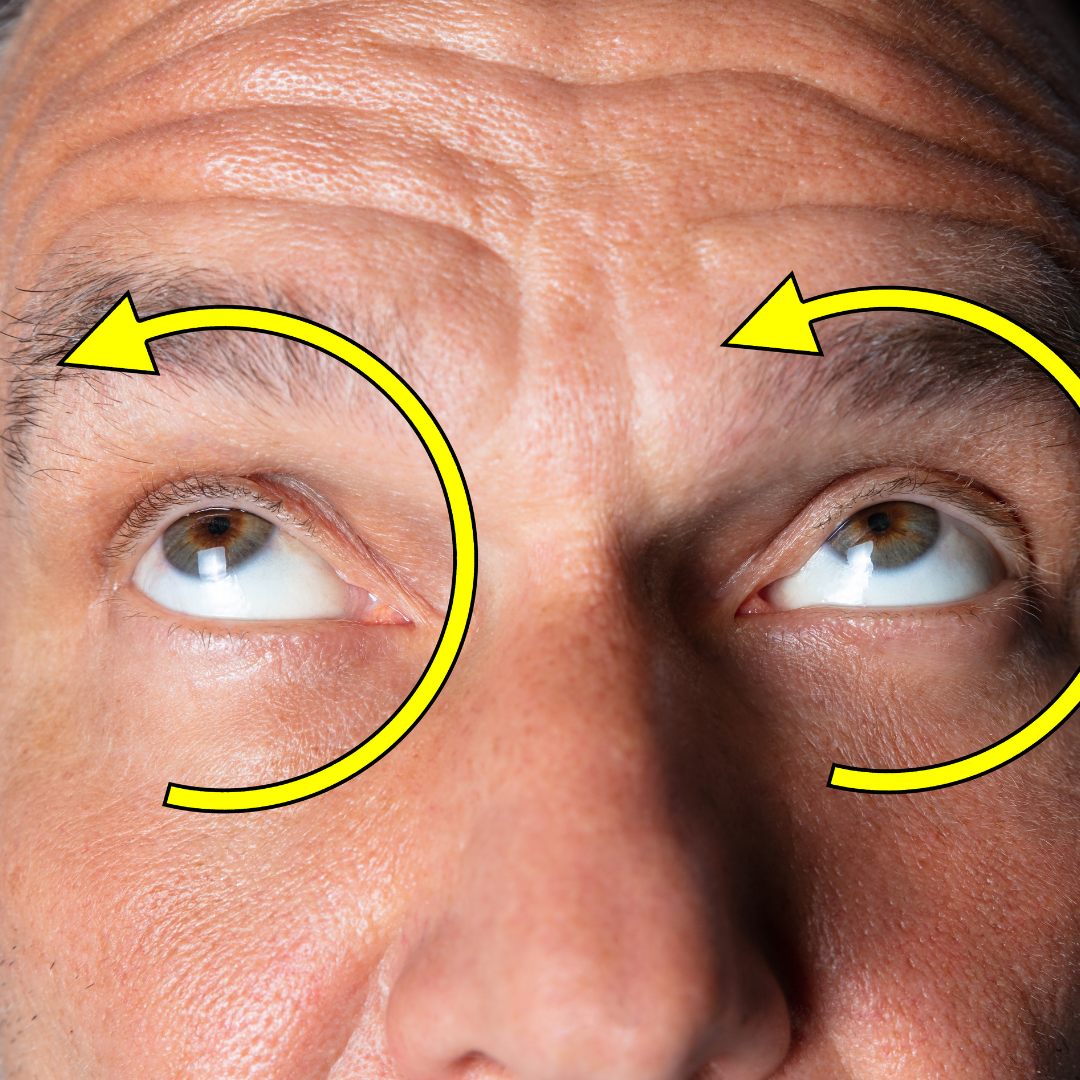
7. Exercise Your Eyes
Eye exercises are a great way to help reduce eye strain and improve focus, especially for those who spend long hours staring at screens or reading.
In addition to the circular motion exercise, many other simple exercises can help strengthen and relax the eyes.
One exercise involves focusing on a distant object for a few seconds and then refocusing on a closer object for a few seconds, repeating this several times.
Another activity is to hold a pencil or other small thing at arm's length and slowly bring it closer to your eyes, focusing on it the entire time.
Blinking is an important and often overlooked aspect of eye health. It's a natural mechanism that helps keep the eyes lubricated and moist, reducing the risk of dryness and irritation.
When we stare at a screen or focus on a particular task for a prolonged period, we tend to blink less frequently, leading to dryness and fatigue in the eyes.
Palming is an eye exercise technique that can help to reduce eye strain and promote relaxation. It involves covering the eyes with the palms of your hands and breathing deeply for a few minutes.
To practice palming, sit comfortably in a chair with your elbows resting on a table or desk. Place your palms over your eyes, making sure that there's no pressure on your eyeballs.
Your fingers should overlap slightly on your forehead, and the heels of your palms should rest gently on your cheekbones.
The Figure eight exercise is a simple and effective way to improve eye coordination and focus. It involves imagining a giant figure eight before you and tracing it with your eyes.
To practice the figure eight exercise, imagine a large figure eight in front of you, with the top of the eight at eye level.
Start by tracing Figure Eight with your eyes, following the curves of the eight with your gaze. Start small, and gradually increase the size of the figure until it fills your entire field of vision.
As you trace Figure eight with your eyes, focus on keeping your movements smooth and steady. Try to maintain a steady pace and avoid jerky or abrupt movements.
You can also experiment with tracing Figure eight in different directions, such as clockwise and counterclockwise.
The Figure eight exercise can help improve eye coordination and focus by challenging the eyes to track a specific movement pattern.
It can be especially helpful for those who spend long hours working on a computer or reading, as it can help to reduce eye strain and improve visual stamina.
Eye-rolling is an eye exercise that can help to relieve tension in the eye muscles and reduce eye strain. It involves slowly rolling your eyes in a circle, first clockwise, then counterclockwise.
To practice eye-rolling, start by looking up at the ceiling. Slowly move your eyes in a circular motion, first in a clockwise direction and then in a counterclockwise direction. Repeat this motion several times, focusing on keeping the movement smooth and steady.
Eye-rolling can help to relieve tension in the eye muscles by stimulating blood flow and reducing stiffness.
It can also be a helpful tool for those who suffer from eye fatigue or headaches caused by prolonged screen time.

8. Eat A Healthy Diet
Maintaining a healthy diet is important for overall health, including eye health.
Age-related eye illnesses like macular degeneration and cataracts can be warded off by a diet high in the antioxidant vitamins C and E, zinc, and omega-3 fatty acids.
Excellent supplies of vitamins and minerals for eye health can be found in fruits and vegetables.
Leafy greens such as spinach, kale, and collard greens are particularly rich in nutrients such as lutein and zeaxanthin, which will help to protect the eyes from harmful blue light.
Other fruits and vegetables, such as carrots, sweet potatoes, and bell peppers, are high in vitamin A, which is important for maintaining healthy vision.
Omega-3 fatty acids in oily fish such as salmon, mackerel, and sardines are also important for eye health.
Studies have shown that omega-3s can help protect against dry eye syndrome and may also help reduce the risk of macular degeneration.

9. Avoid Smoking
Smoking is harmful to many parts of the body, including the eyes. The chemicals in tobacco smoke can damage delicate eye tissue and lead to various eye problems, some of which can cause permanent vision loss.
Cataracts are a common eye problem associated with smoking. Cataracts occur when the eye's lens becomes cloudy, leading to blurry vision and difficulty seeing in low light.
Smokers are at a higher risk of developing cataracts than non-smokers, and the risk increases with the number of cigarettes smoked daily.
Smoking also increases the risk of age-related macular degeneration (AMD), a leading cause of vision loss in older adults.
AMD affects the macula, the part of the retina responsible for central vision. Smoking damages the blood vessels in the eye and can contribute to the development of AMD.
Dry eye syndrome is another eye problem associated with smoking. Smoking can cause the eyes to become dry and irritated, leading to discomfort, redness, and blurry vision.

10. Take Breaks From Reading
Reading for long periods can cause eye strain and fatigue, leading to headaches, blurry vision, and neck and shoulder pain.
Regular breaks can help alleviate these symptoms and reduce the risk of long-term eye damage.
To take a break from reading, look away from the book or screen and focus on something in the distance for at least 20 seconds.
This can be a wall, a window, or anything at least 20 feet away. This will help your eyes relax and refocus, reducing muscle strain.
It's also important to take breaks from sitting for extended periods. Get up and stretch your legs, or take a short walk to get your blood flowing and your body moving.
This will help improve your overall health and reduce the risk of developing health problems associated with a sedentary lifestyle.
11. Take Care Of Your Overall Health
Taking care of your overall health is essential for maintaining healthy eyes. Regular exercise helps your body stay fit and reduces the risk of eye conditions like glaucoma, macular degeneration, and diabetic retinopathy.
Additionally, exercise can improve circulation and lower blood pressure, which are important for eye health.
Managing stress is also important for eye health. Stress can cause eye strain, leading to dry eyes, headaches, and blurred vision.
Finding ways to manage stress, such as meditation or exercise, can help prevent these symptoms.
Smoking and excessive alcohol consumption can hurt your eye health. Smoking has been linked to an increased risk of macular degeneration, cataracts, and optic nerve damage.
Similarly, excessive alcohol consumption can cause vision problems and increase the risk of developing cataracts.
Eating a healthy, balanced diet can also benefit your eye health. Foods rich in vitamins A, C, and E and omega-3 fatty acids are particularly beneficial for eye health. These nutrients can help prevent cataracts and macular degeneration.
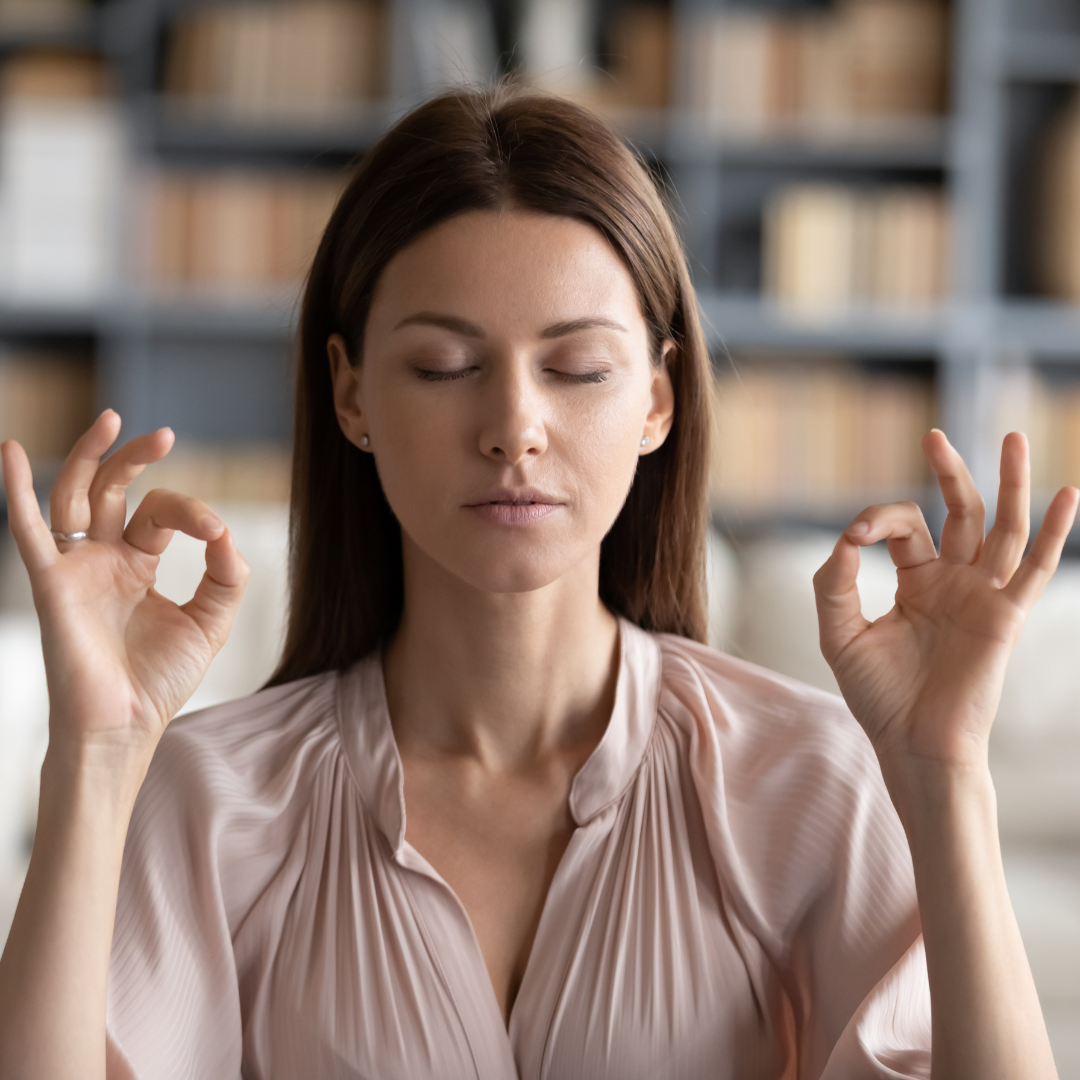
Conclusion
Various effective ways exist to reduce and prevent eye strain. These include minimizing screen time, adjusting lighting and display settings, maintaining good posture, using lubricating eye drops, and following the 20-20-20 rule.
By adopting these practices, you can ensure optimal eye health and prevent long-term damage to your vision. Remember to prioritize your eye health and make these simple adjustments to your daily routine.
I trust you enjoyed this article about the Best Tips To Reduce Eye Stress. Please stay tuned for more blog posts to come shortly.
JeannetteZ
>>>Please click here to read my all-inclusive article about Lessons That Will Teach You All About Stress<<<
>>>Are you interested in Natural Healing And Stress Relief through Herbs? Please click here for my #1 Recommendation<<<
Your Opinion Is Important To Me
Thoughts? Ideas? Questions? I would love to hear from you. Please leave me your questions, experiences, and remarks about this article on the Best Tips To Reduce Eye Stress in the comments section below. You can also reach me by email at Jeannette@Close-To-Nature.org.
Disclosure
This post may contain affiliate links. I earn from qualifying purchases as an Amazon Associate and other affiliate programs. Please read my full affiliate disclosure.
You might also enjoy these blog posts:
17 Best Tips On How To Reduce College Stress
14 Best Ways To Reduce Stress Of A Breakup
18 Best Ways To Reduce Financial Stress
12 Best Tips To Reduce Stress While Studying

